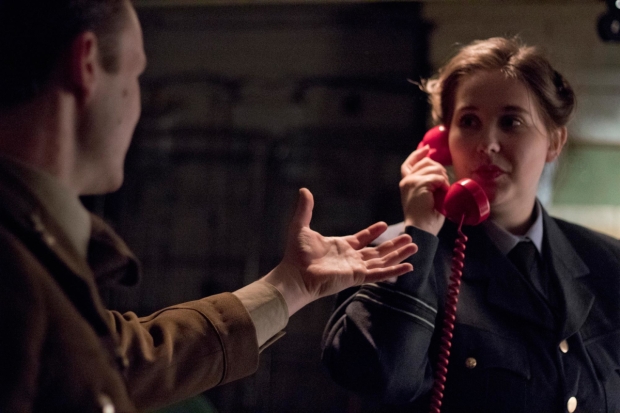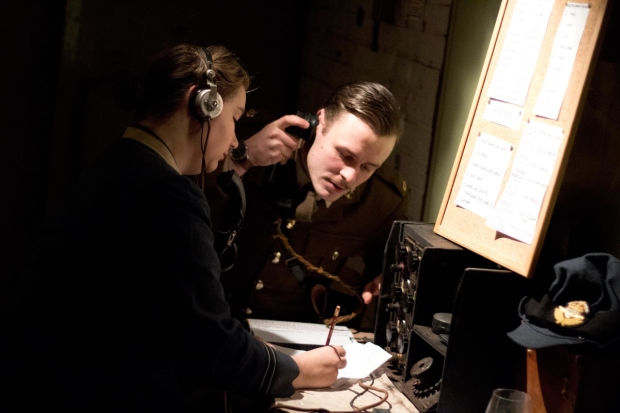Too many companies are calling their work 'immersive'
As they stage their new game theatre show For King and Country, Parabolic Theatre’s Owen Kingston explains why too many companies are calling their work ‘immersive’

© Owen Kingston
'Immersive' is a buzz word that is fast rendering itself meaningless as more and more companies use it to describe a huge variety of theatre, a large amount of which is about as immersive as dipping a teabag into a mug of hot water. As that happens, companies making genuinely immersive theatre, where the audience gets swallowed up into the world of the show, are searching around for different words to make a stronger distinction between themselves and conventional theatre companies with their nicely designed promenade shows.
Interactive theatre is one such term, and game theatre is another – not the only words flying around, but both can be comfortably assigned to the work we at Parabolic Theatre make. What both terms have in common is that they both involve the word 'theatre', and for my company in particular that's very important.
Layering game mechanics into theatre and performance into gaming can have disastrous results
Making game theatre that is truly both game and theatre involves marrying together two very different mindsets. Theatre involves performance – it requires only an actor and an audience as Grotowski famously noted. Games generally require rules and a way to win, and making those two sets of ingredients play nicely can be problematic. By layering game mechanics into theatre and performance into gaming, you mess with the expectations of your audience which, if not elegantly handled, can have disastrous results.
But games are a fabulous way of telling stories. Some of the best stories of the modern age have been told not through books or plays or films but through game-driven narratives where the consumer has the power to affect the outcome. If it can work on a computer screen, then why can't it work in a live performance setting?

© Owen Kingston
Clearly it does work, as a growing number of interactive game-driven theatre pieces are proving. Working so well in fact, that small fringe companies such as Parabolic Theatre are able to produce shows paying their actors above Equity minimum over an eight-week run with no funding whatsoever, and still make a profit.
It's amazing how quickly the theatre establishment rushes to brand your work as 'not really theatre'
But when you see a show have that sort of success, and draw in a large number of people who would never normally darken the door of a conventional theatre, it's amazing how quickly the theatre establishment rushes to brand your work as 'not really theatre', as though to qualify as theatre, an 'experience' must be very worthy in its content, very serious in its approach, marketed primarily to a theatre-going audience, and intended primarily to be enjoyed by the intelligentsia. That in order to be true art, the work must lose money, be reliant upon state funding, and be primarily enjoyed by the few and not the many.
With the artistic establishment talking incessantly about reaching new audiences, you would think that the one corner of our industry succeeding massively in doing this would be hailed as heroes – instead immersive/interactive/game theatre makers are continually plagued with that most snobbish of ACE-funding denying questions – "Is it really theatre?"
For King and Country runs at CoLab Factory until 10 June.



















